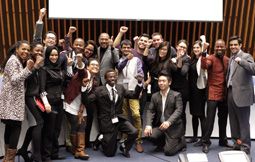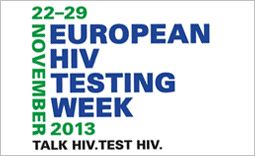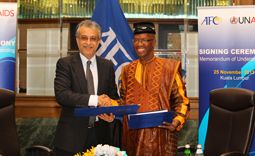
Feature Story
Massive progress made in achieving Millennium Development Goals but stronger push needed says UN report
02 July 2013
02 July 2013 02 July 2013The world has made massive strides towards reaching the Millennium Development Goals (MDGs) and a number have already been attained. Countries now need to work harder to ensure that all the goals are met by the 2015 deadline, says a new United Nations report out on 1 July 2013.
Launched by the United Nations Secretary-General Ban Ki-Moon, the report highlights the role of the eight MDGs in making a real difference to the lives of millions around the world since they were adopted in 2000. Providing an overarching framework for global development, they have brought together the efforts of governments, the international community, civil society and the private sector to set priorities, raise awareness and fuel action on the ground.
According to Mr Ban, “The Millennium Development Goals have been the most successful global anti-poverty push in history.” He added, “In more than a decade of experience in working towards the MDGs, we have learned that focused global development efforts can make a difference.”
The target to halve the number of people living in extreme poverty has already been reached, as have the goals for improving access to drinking water and making conditions better for the world’s 200 million people who live in slums. There have also been marked improvements in primary education and health. Progress in the response to malaria, tuberculosis and HIV has had a dramatic impact, according to the report.
The Millennium Development Goals have been the most successful global anti-poverty push in history. In more than a decade of experience in working towards the MDGs, we have learned that focused global development efforts can make a difference.
United Nations Secretary-General Ban Ki-Moon
Taking HIV as an example, the level of new infections in sub-Saharan Africa fell by 25% between 2001 and 2011. The Caribbean saw an even sharper decline of more than 40% in the same period. A record 10 million people living with HIV now have access to antiretroviral treatment and there has been a significant acceleration in roll out and uptake in the last year.
However, despite such notable advances 2.5 million people still became infected with HIV in 2011, the AIDS epidemics in Eastern Europe and Central Asia are growing and young people do not yet possess adequate knowledge about how to protect themselves from the virus.
The report highlights other areas where progress has been uneven among and within countries, such as maternal health, expanding access to sanitation and achieving gender parity. People living in poverty or in rural areas remain at a disadvantage: more than 80% of people without access to improved drinking water live in rural communities. Poorer children are still more likely to miss out on an education than their richer counterparts.
The UN Secretary-General in the foreword to the publication exhorts countries to redouble their efforts to rise to such challenges in order to “achieve the MDGs and generate momentum for an ambitious and inspiring post-2015 development framework. Now is the time to step up our efforts to build a more just, secure and sustainable future for all.”



